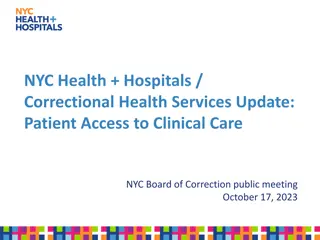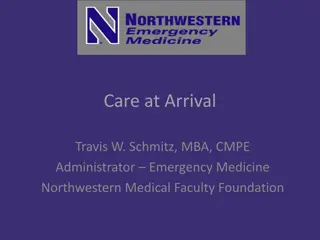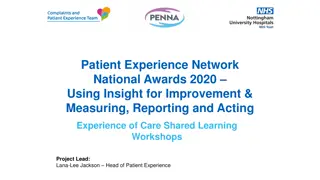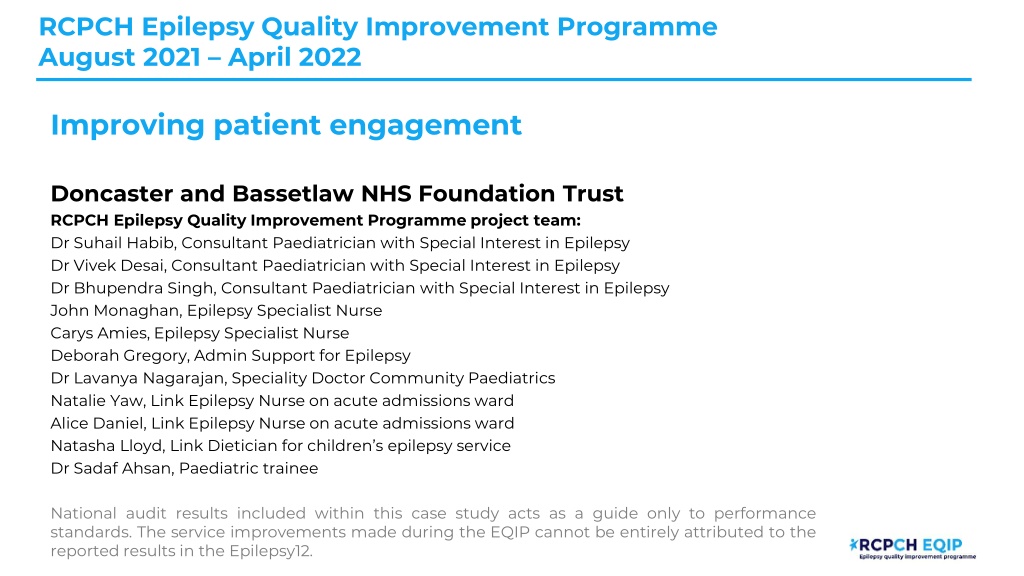
Improving Patient Engagement in Children's Epilepsy Services at Doncaster and Bassetlaw NHS Trust
Learn about the quality improvement program aimed at enhancing patient engagement in children's epilepsy services at Doncaster and Bassetlaw NHS Foundation Trust. The team focuses on digital feedback forms, open-ended questions for patient feedback, and developing tools for better representation of patient views.
Download Presentation

Please find below an Image/Link to download the presentation.
The content on the website is provided AS IS for your information and personal use only. It may not be sold, licensed, or shared on other websites without obtaining consent from the author. Download presentation by click this link. If you encounter any issues during the download, it is possible that the publisher has removed the file from their server.
E N D
Presentation Transcript
RCPCH Epilepsy Quality Improvement Programme August 2021 April 2022 Improving patient engagement Doncaster and Bassetlaw NHS Foundation Trust RCPCH Epilepsy Quality Improvement Programme project team: Dr Suhail Habib, Consultant Paediatrician with Special Interest in Epilepsy Dr Vivek Desai, Consultant Paediatrician with Special Interest in Epilepsy Dr Bhupendra Singh, Consultant Paediatrician with Special Interest in Epilepsy John Monaghan, Epilepsy Specialist Nurse Carys Amies, Epilepsy Specialist Nurse Deborah Gregory, Admin Support for Epilepsy Dr Lavanya Nagarajan, Speciality Doctor Community Paediatrics Natalie Yaw, Link Epilepsy Nurse on acute admissions ward Alice Daniel, Link Epilepsy Nurse on acute admissions ward Natasha Lloyd, Link Dietician for children s epilepsy service Dr Sadaf Ahsan, Paediatric trainee National audit results included within this case study acts as a guide only to performance standards. The service improvements made during the EQIP cannot be entirely attributed to the reported results in the Epilepsy12.
Improving patient engagement Doncaster and Bassetlaw NHS Foundation Trust Project aim By March 2022, 70% of children aged 11-19 years old with epilepsy will have digital feedback forms offered in clinics (consultant and nurse led) and on acute wards. Background Doncaster and Bassetlaw Teaching Hospitals NHS Foundation Trust (DBTH) is one of Yorkshire s leading acute Trusts, serving a population of more than 420,000 across South Yorkshire, North Nottinghamshire, and the surrounding areas. Their children's epilepsy service currently provides care to 200 300 diagnosed patients with epilepsy and six appointments per week for new or suspected epilepsy patients. Area of focus The team previously participated in and successfully completed the pilot EQIP wave, which they felt was a fantastic experience, but above all, it immensely uplifted service delivery and patient experience. Focusing on sustainable quality improvement, as a team, they aim to accomplish the following objectives in the new EQIP collaborative: progress in patient satisfaction and care, teaching and training of staff, linking, and networking.
Improving patient engagement Doncaster and Bassetlaw NHS Foundation Trust Changes Sept 21: Asked patients (11-19 years old) whether they would like to have a digital feedback form about epilepsy services or direct engagement by asking yes or no questions. Patients were asked open questions at the end of consultations on what and how they would like to give feedback about the epilepsy services at Doncaster and Bassetlaw NHS Foundation Trust. Development of a digital feedback loop. Dec 21: The team asked their patients open questions at the end of consultation concerning what and how they would like to give feedback about epilepsy services at Doncaster and Bassetlaw NHS Foundation Trust. The comments and views of patients were listed for group discussion in order to develop a tool that can represent the pool of views expressed by patients. With the suggestions and agreement of the team, the questions have been formatted into a questionnaire with only four questions: How do you feel about the visit to the clinic today? o Do you have information on how to seek support for mental health issues like stress or anxiety? o What are the views about virtual epilepsy follow-up clinics organised jointly with doctors and nurses? o What do you know or feel about the transition to adult medical care? o
Improving patient engagement Doncaster and Bassetlaw NHS Foundation Trust Changes Service staff were asked the following questions: What are the views about virtual epilepsy follow-up clinics organised jointly with doctors and nurses? Trust epilepsy specialist nurses are employed by a separate community Trust, which causes difficulties in o communication. If the team can engage patients and develop a virtual clinic for follow-up patients with both the medical and nursing teams in attendance, that would certainly improve collaboration and patient care. What do you know or feel about the transition to adult medical care? It is good to begin talking about transition at an early stage, which will help the service tailor the transition o plan individually, improving flexibility for patients. The questionnaire was linked to a QR code and data gathered on the MS Forms platform, and the team obtained support from Trust QI. Additionally, the team used clinic chats, paper-based questions, QR codes, and email links.
Improving patient engagement Doncaster and Bassetlaw NHS Foundation Trust
Improving patient engagement Doncaster and Bassetlaw NHS Foundation Trust
Improving patient engagement Doncaster and Bassetlaw NHS Foundation Trust Results Sept 21: 4 patients were asked: 2 in consultant clinics, 1 in a nurse clinic, and 1 on the ward. All the patients would like to participate; the idea of electronic or digital forms is considered more user-friendly. Nov 21: 7 patients aged 11 15 years were spoken to informally at the end of the clinic. They would like to participate in feedback and talk about different aspects of care, including transition, mental health support, and the involvement of technology, particularly expanding distant access to the service, and suggested a continuous digital feedback platform. Dec 21: Engaged a good number of patients. Clarification on the project's aims is a lot clearer. Jan/Feb 22: 49 responses received between Jan/Feb 2022 from QR codes and email links. 41/49 ranked the service verygood and 8 "good . The majority were extremely satisfied with the information given by consultants and ESN. 15/49 required more information about psychological support. Regarding views on a virtual clinic, surprisingly for the team, 24/49 patients responded they would rather have face-to-face appointments. 37/49 were feeling more worried about the transition to adult services.
Improving patient engagement Doncaster and Bassetlaw NHS Foundation Trust Challenges Working across two geographical areas within the same service or Trust. Epilepsy nurses work for the community Trust. Clarity on aim and objectives. Interpretation of results and implementation of changes. COVID-19 pandemic. Lack of a structured feedback loop from patients and families. Effective engagement of patients and families. Streamlining transition care.
Improving patient engagement Doncaster and Bassetlaw NHS Foundation Trust Outcomes Established user-friendly and easy-to-analyse data tools for effective patient engagement. Cross-site working has become more organised. Team education and training on QI have increased, and the EQIP training days have given more confidence to team members. The team gained increased confidence in the delivery of service with the engagement of patients and their families. Beyond the EQIP, the team plans to implement improvement interventions in areas such as the transition care pathway and streamlining first-fit clinics.
Improving patient engagement Doncaster and Bassetlaw NHS Foundation Trust Lessons learnt Feedback from patients on the idea of introducing virtual clinics was not preferable in comparison to in-person clinics, debunking team assumptions. Psychiatric support from mental health services is challenging. Recourse allocation for transition care. Wider collaboration with epilepsy teams from across the UK on the EQIP has been useful. Focus on simple changes to increase patients involvement. This programme helped the service team identify the strengths and weaknesses of the teams and the delivery of the service. Visual presentation of team project intervention Team poster Team video presentation
https://eqip.rcpch.ac.uk eqip@rcpch.ac.uk @RCPCHEQIP




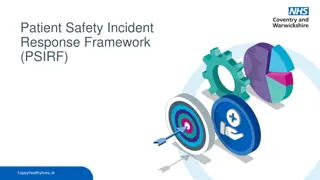

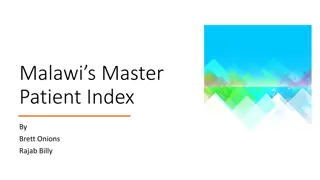



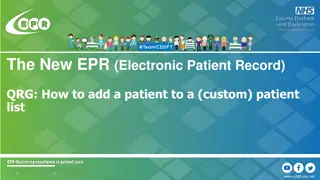
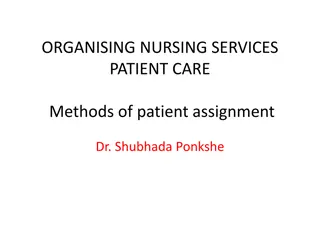

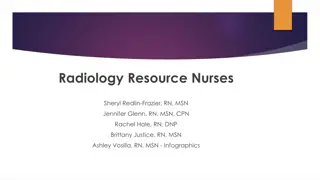
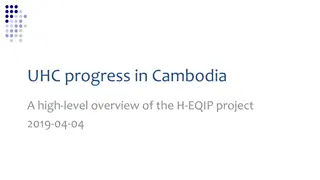
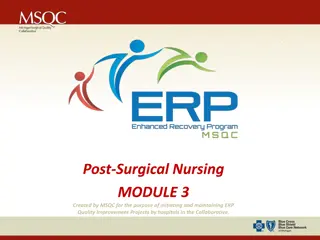
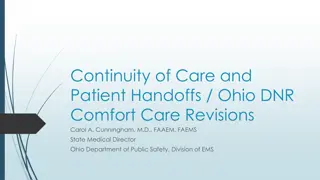
![Comprehensive Case Study on [Insert Case Title Here]](/thumb/159705/comprehensive-case-study-on-insert-case-title-here.jpg)
